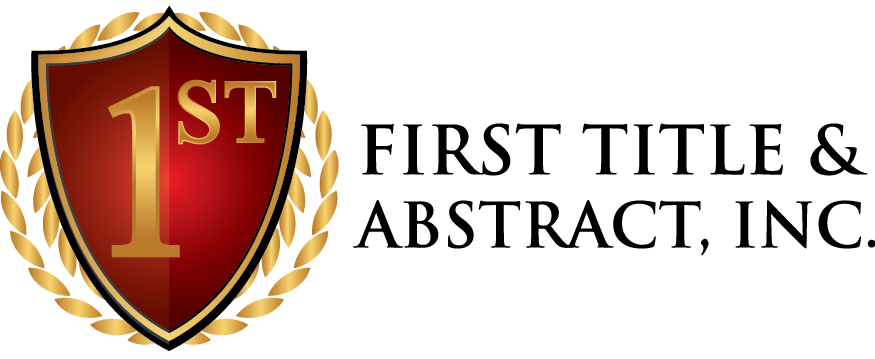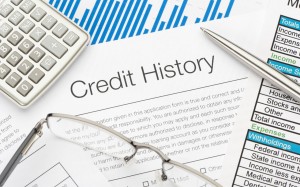Creating Facebook ads for real estate is one of the simplest and most effective methods of online marketing and advertising.
Having a Facebook profile is one thing, but actually using it effectively is another.
Did you know Facebook Ads can actually make your company visible to people with very specific interests and demographics?
A couple things to note:
Facebook now has more active users than China’s entire population.
Also, the average American spends 40 minutes on Facebook a Day – that’s 20-30 minutes longer than most any other website.
“Facebook now has more active users than China’s entire population.”
If you don’t yet have a Facebook profile for your business, please contact us at First Title & Abstract, Inc.
We can help you get started!
There are many types of ads you can run but the most common are as follows:
- Sidebar
- News Feed
- Remarketing
“The average American spends 40 minutes on Facebook a Day – that’s 20-30 minutes longer than most any other website.”
News Feed Ads are the focus of this article because they are the most effective way to advertise on Facebook.
News Feed Ads
News Feed Facebook ads, as you might think, are the ads that show up right in your Facebook News Feed. In fact, News Feed Facebook ads are the only ads that show on Facebook mobile and over 60% of Facebook’s revenue comes from mobile devices.
Even though news feed ads are still very popular, as of 2016 the way you get clicks has evolved as people have grown more tech savvy.
You can no longer just post a picture of your office staff and say: “use us for your real estate purchasing, selling, or legal/closing needs.” You need to prove you can solve the customer’s problem first by providing value in the form of useful information.

Social Media Content Creates Buzz and Keeps You Front of Mind!
Here is what you want in your News Feed ads:
1) Graphics with text
These work well and you can test ad variations
2) Faces/emotion work well
The best graphics often have person’s face that conveys emotion. The eyes are a gateway to the soul for a reason.
3) Short text, unless emotional
Either really short and casual posts, or really long “rants” get read most often. People don’t like average or mediocre, they want emotion.
4) Position as “helpful resource”, not an “ad”
5) Focus on the result the viewer will get by clicking
A good example of this is the “Download” button above. Viewers know what to expect when they click.
6) Pose a question
“Pizza or Ravioli? What’s your favorite? Post below.”
Facebook’s algorithm can be summarized as this: The more activity a post gets the more it is shown.
7) Create a Poll
Similar to #6, create a quick Facebook poll to get that same interaction above, that gets your post shown more often and to more people organically.

Memes entertain and inform and are readily passed on … from the Greek “mimēma” ‘that which is imitated’
8) Memes or Quotes
Memes are simply quotes or captions on funny pictures. The easiest way to find them is on Google Images or Pinterest.
9) Video
Did you find a useful video that helps your customers or prospects? Share it!
The same is true for most non-advertisement posts on Social Media as well. Use these “shareable” posts and experiment what works well for you.
Who do I advertise to?
Building an audience: There are several ways to build an audience to display your ads to but here are my favorites for Realtors, Title Agents, Lawyers, and Mortgage brokers.
1) Job title (i.e. Realtor, Mortgage Broker)
2) Interests (i.e. People who have liked The National Association of Realtors)
3) Location radius (Select a city and radius)
4) Lookalike Audience (Have a database of customers? Upload the list of email addresses to find other Facebook users with similar interests to your customer list. This one is really cool and powerful.)
5) Facebook Groups (Advanced Strategy – See below)
6) Retargeting (Advanced Strategy – see next article)
One thing to keep in mind with Facebook Ads…more people doesn’t mean that the ad is better. In fact focusing on having “more people” can both hurt your conversion and cost you dollars; Facebook will charge you more per click for being general.
A far better approach is smaller targeted ad audiences like “Dog lovers” instead of “Pet lovers,” or in real estate, I might start by focusing on specific communities within a city and make the audience larger as I test.
As a general rule of thumb I like to start with an audience size of around 5,000 and no more than around a few hundred thousand.
Create a Group
If you are planning on doing lots of Facebook advertising and want to save a ton of money on cost per click I’d highly recommend creating a Facebook Group.
So I’ll first explain what to do and then why you’d want to do it in the first place.
Step 1: Create a Facebook Group
The first thing you want to do is create a group to benefit your target market. For example, if you are targeting first-time homebuyers in Austin, Texas, you may want to call your group “First-Time Home Buyers in Austin.”
Or if you really want to appeal to Realtors in Nevada, your group might be “Nevada Realtors Marketing Mastermind.”
Do not create a group that is “Fans of Title Co X” but instead think “Realtors in X City (local market)”
Get creative but find something useful where group members would be willing to share on (remember Facebook is social).
Step 2: Post to the Group
Next, visit your favorite industry publication sites like Title News and The Title Report then make a few posts in the group. The only purpose here is making sure the group is not empty.
Step 3: Invite friends and family to join and like the group
This makes it so that the group is not empty when you invite strangers to join. Assure your friends and family that they can always leave the group in a few weeks if they are not interested in the topic, you just need some warm bodies in there.
Step 4: Advertise the Group
Next, use the steps in this article to create an ad to join or like the group. This ad might show up in someone’s news feed as “Realtors in Austin Texas Group…Like this” and you’ll get many people to do so which will grow your group audience.
Note: make sure the group has nothing to do with your company but instead for the benefit of the members.
Why spend money to advertise a free group?
I’m glad you asked! Here is a cool trick that few know about:
Reason 1:
Facebook CPC (Cost Per Click) is typically cheaper when your Call-To-Action (CTA) is a page on Facebook itself and not on an external site. Score!
Reason 2:
Here is where the magic is. Not only do you save money to get someone to “Like” or join your group as opposed to going to your website, but once they have you can now run other direct promotion ads to the people of the group that you own – often times lowering the CPC to mere pennies!
For example, an ad to visit my website might cost $1.25 per click, and one to like my company Facebook page might cost $0.75 per click. Whereas an ad to my own group audience advertising my services where I am the owner of the group and the people in the group are highly targeted might only cost $0.05 per click.
This is why I recommend customers that are in Facebook for the long term perform these extra steps.
Budget
Lastly, always start your Facebook ads at a low cost per day budget that you bump up slowly as you start gaining traction. Not doing so will cause you to waste a lot of money. For example, I always start mine at $5 a day until I have one performing as I like with a 5-10% click through rating (CTR) and then bump it up to $10.
That’s it! Create your ads and let them run. If you found this useful please let me know in the comments so I can share more tips on Facebook ads.
Also if you think this was cool, read the next article in the series, it is 100% on remarketing, what it is exactly, how to do it quickly, easily and cheaply!
We Can Help!
First Title & Abstract, Inc. distinguishes itself from the competition by being a consultative value-added strategic partner.
We succeed when you succeed, and that’s what makes us different! We know what works, and can show you how to build your business and sell more properties!
Contact any of us at our Naples or Marco Island offices, and ask for the marketing department handling social media.
We’re eager to be partners in your success!




